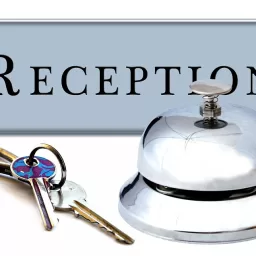“What’s in a name?” asked Shakespeare. A lot apparently, if the search engine gods’ “Book of Wrong” is anything to go by.
Most bloggers and website owners swear by their domain names – the name that represents the web identity and reflects the basic blog personality or the company brand. Some pore over names for hours to come up with a unique and crafty one while others take seo advice to heart, and incorporate their keywords into the domain name.
Savvy webmasters and bloggers keep the following tips in mind when registering a good domain name.
KISS – Keep it short and simple
Some popular sites get away with four but limiting the domain name to 2-3 phrases makes it easier to remember and recollect. Don’t use complicated names, unique spellings, especially foreign words, the words – the, me and you for a blog. Not everyone bookmarks or subscribes to your site in its infancy, why prolong your struggling phase with complicated names? That doesn’t mean that you can’t be creative – think deli.co.us and Instagram for instance (before they settled for the com extension) or 2et.in (tweet in) and who.is (a domain and website search site)
Pay Attention to Extensions
The extensions that you use makes a lot of difference to your blog in terms of visitor traffic and audience. Com is considered the ideal extension for a blog seeking a global presence, monetized or otherwise. Use other extensions like net, org and me to give the blog a fresh and new look. A region or country specific site can go with a “.co.countryname” extension to lock in the targeted audience. Many professional or business blogs find it advantageous to register their domain name in the three basic extensions (com, net and org) or opt for bulk domain registration. This reduces the chances of a competitor cloning your successful model or stealing your visitors by using your domain name with a different extension.
Use a Choice Keyword
Use a keyword in the domain name that focuses on your blog niche and identifies the basic content of your site. This is not the same as using a domain name that is a mirror of your keyword/s. If used judiciously, this reputed search engine optimization technique can help you rank better and attract relevant audience to your blog. Contrary to popular perception, exact match domain is not a bad seo practice as long there is quality content in such sites. You can play safe by using a word that represents your niche without being a keyword – Gizmodo or TechCrunch are good examples that come to mind.
Avoid Hyphens, Double Dashes and Initials
You may be tempted to go in for a domain name with hyphens and double dashes to compensate for an unavailable one. Double dash site names are considered as spam sites which will have Google taking an undue dislike to your site. Names containing hyphens aren’t that bad, but run the risk of losing prospective visitors who may type in an alternate site name without the hyphens. Initials work for an established company or brand, not so much for other bloggers.
Choose a Quality Domain Registration Site and Park Your Domain Name
There is no such thing as free lunch in the world. Don’t be a cheap skate and use unreliable companies, not when it comes to something that will define your online presence and generate online income – you might end up with a name that is already registered to someone else. Check the Whois site to see the availability and do a review of domain registering sites and choose one based on your budget.
Buy a good domain name in advance and use it when you actually start blogging. Register the name for as long as you can to avoid the expiry date or name repurchase by someone else.
Newbie hobbyist and aspiring professional bloggers can use these tips to maximize the dual benefits of ranking higher in search engines and not being downgraded or debarred by newer algorithm updates.
AUTOPOST by BEDEWY VISIT GAHZLY






